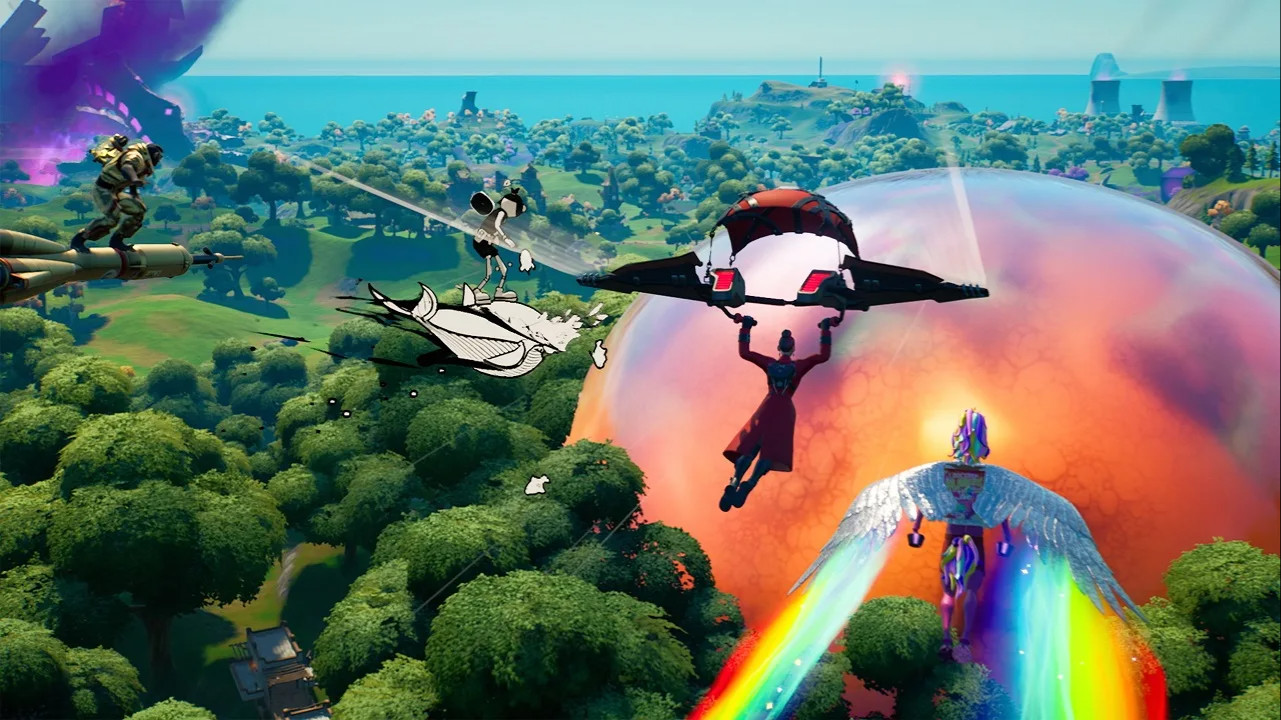Epic Games just got $2 billion from Sony and Lego — and it's all about fighting Roblox
Epic Games just got $2 billion from Lego and Sony; what’s next?

No one knows exactly what the “metaverse” will be, but Epic Games apparently has a plan in mind. And, as of today (Apr. 11), that plan involves two unexpected companies: Sony and Lego.
These three companies weren’t exactly competitors before, but they’re now officially working together, at least in a financial capacity. Sony and Lego have each invested $1 billion in Epic, with the end goal of helping build a “metaverse” — although none of the companies involved has defined exactly what they mean by that.
This information comes directly from Epic Games, in a press release entitled “Sony and KIRKBI Invest in Epic Games to Build the Future of Digital Entertainment.” (Rolls right off the tongue, doesn’t it?) As you might expect, it’s all pretty high-level corporate stuff, discussing fundraising, equity and stock options. Still, there are a few interesting tidbits for gamers to consider.
First and foremost, it’s interesting that Sony and Lego would invest money in Epic at all — and $1 billion apiece is hardly a casual investment. Sony and Epic are, in some respects, competitors. They’re both in the game publishing business, and as Sony puts more and more of its games on PC, that competition could intensify. Lego, on the other hand, is a physical toymaker, first and foremost. Aside from a smattering of Lego PC games, for which Warner Bros. handles the publishing, there’s not much of an Epic connection at all.
However, there’s one key word that Epic, Sony and Lego representatives all latched onto: “metaverse.”
“As a creative entertainment company, we are thrilled to invest in Epic to deepen our relationship in the metaverse field, a space where creators and users share their time,” said Sony CEO Kenichiro Yoshida.
“This investment will accelerate our engagement in the world of digital play, and we are pleased to be investing in Epic Games to support their continued growth journey, with a long-term focus toward the future metaverse,” said Søren Thorup Sørensen, CEO of KIRKBI, Lego’s holding and investment company.
Sign up to get the BEST of Tom's Guide direct to your inbox.
Get instant access to breaking news, the hottest reviews, great deals and helpful tips.
“This investment will accelerate our work to build the metaverse and create spaces where players can have fun with friends, brands can build creative and immersive experiences and creators can build a community and thrive,” said Tim Sweeney, CEO of Epic Games.
This metaverse investment makes more sense when you consider which other company has a head start, however: Roblox. While Roblox is a little hard to quantify, it already exists at the nexus of “video game,” “open-ended simulation” and “platform for user-created software.” Not only is Roblox an incredibly lucrative endeavor, but it’s arguably better-suited to a metaverse than any other platform.
From that perspective, the Lego and Sony investments in Epic make a whole lot of sense. Epic has an enormous fan base who are used to blurring the lines between video games and shared online space, thanks to Fortnite. Sony has respectable VR know-how, and understands how to build dedicated fan followings with exclusive experiences. Lego, of course, is one of the closest analogues to Roblox: an open-ended way for kids to build things, and create their own experiences from a single, widely compatible toolkit.
Granted, none of this nails down exactly what the “metaverse” is, or how Epic, Sony and Lego plan to capitalize on it. It’s entirely possible that within the next few years, the everyday public will want shared online spaces that incorporate gaming, VR, chat and even productivity in a single suite. It’s also possible that they’ll want to keep these things separate, if only for sanity’s sake.
Marshall Honorof is a senior editor for Tom's Guide, overseeing the site's coverage of gaming hardware and software. He comes from a science writing background, having studied paleomammalogy, biological anthropology, and the history of science and technology. After hours, you can find him practicing taekwondo or doing deep dives on classic sci-fi.

